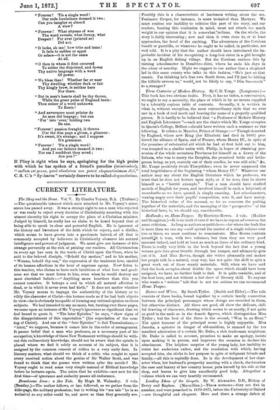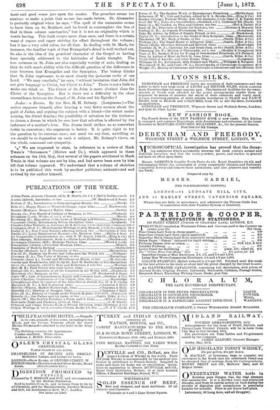taste and good sense jars upon the reader. The preacher
seems too Anxious to make a point that no one has made before. Dr. Alexander is probably original when he says, "The spell of the mountains seems to have been on St. Matthew, and he loved to contemplate the Son of God in those solemn sanctuaries," but it is not an originality which is worth having. This fault recurs more than once, and there is a certain want of repose and eager striving for effect throughout the volume ; but it has a very solid value, for all that. In dealing with St. Mark, for instance, the familiar topic of that Evangelist's detail is well worked out. So also is the idea of the practical character of the Gospel as having been specially addressed to the habitudes of Latin thought. The two sermons on St. John are also especially worthy of note, dealing as they do with much ability with the difficult question of the difference in tone between that Evangelist and the Synoptics. The bishop thinks that St. John represents to us most closely the ipsissima verba of our Lord. "We may conclude," he says, "without hesitation that John did not give language to Christ, but Christ to John." There is not a little to make one think so. The Christ of St. John is more distinct than the Christ of the Synoptics. But is there not a difficulty in the close resemblance between the Gospel of St. John and his Epistles ?



































 Previous page
Previous page